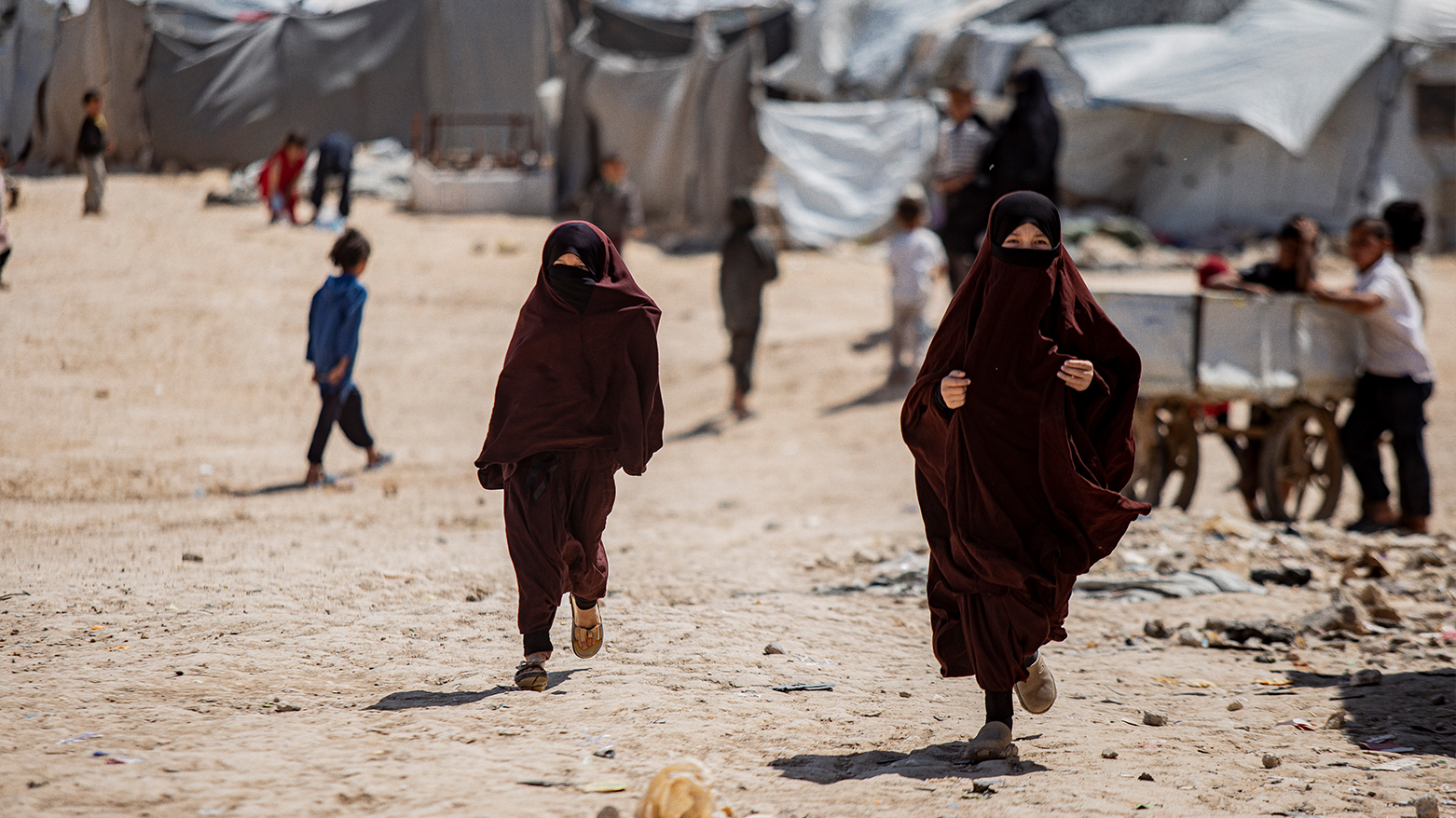Iraq Repatriates Over 17,000 from Syria's Al-Hol Camp
Iraq has repatriated over 17,000 citizens from Syria's Al-Hol camp, a move addressing security warnings from the UN and US. The Iraqi ministry stated that 11,000 returnees are now in rehabilitation programs, with plans to bring back 6,000 more from the SDF-guarded facility.

ERBIL (Kurdistan24) - The Iraqi government has undertaken a massive and pioneering effort to repatriate its citizens from the notorious Al-Hol camp in Syria, announcing on Friday that more than 17,000 individuals have already been returned to Iraq in a move aimed at addressing a complex humanitarian and security crisis that has simmered for years under the watch of international observers.
In a statement released on Friday, the Iraqi Ministry of Migration and Displaced highlighted its proactive role, noting that Iraq was the first country to take the initiative to return its citizens from Syria's Al-Hol camp. The ministry provided specific figures on the progress of this large-scale operation, confirming that more than 17,000 of its citizens have been successfully brought back to Iraqi territory. Of that substantial number, the ministry specified that 11,000 individuals are currently undergoing rehabilitation programs designed to facilitate their reintegration into society.
The commitment to this process is ongoing, as the ministry also stated, "We are in continuous preparation and are working for the return of more than six thousand other Iraqi citizens from the Al-Hol camp in Syria." This signals a clear and sustained government policy to resolve the status of all its nationals remaining in the camp.
The significance of this large-scale operation was previously underscored by Karim Nouri, the Deputy Minister of the Iraqi Ministry of Migration and Displaced.
In remarks to his country's media, Nouri had expressed a sense of accomplishment regarding the program's objectives. "We have returned the majority of our Iraqis from the Al-Hol camp to their home regions," he stated.
He framed the initiative as a success, adding, "This is a positive sign, and we have been successful in reintegrating them into society." His comments reflect the dual purpose of the Iraqi strategy: not only to physically return citizens but also to actively manage their social reintegration, a critical step in ensuring long-term stability and mitigating potential security risks associated with their time in the camp.
The Al-Hol camp, the source of this complex repatriation challenge, is situated south of the town of Al-Hol within the Hasakah province of Northeastern Syria (also known as Western Kurdistan).
The facility operates under the authority of the Democratic Autonomous Administration of North and East Syria (DAANES), with the Syrian Democratic Forces (SDF) responsible for guarding the camp and managing its critical security affairs. The sheer scale of the situation at Al-Hol has been a matter of international concern for years. Figures from as far back as April 2019 placed the number of detainees in the camp at a staggering 74,000 individuals. The demographic profile of the camp is particularly challenging, as the majority of its residents are women and children.
While they are citizens of several different countries, a primary portion of the population originates from Syria and Iraq, placing a heavy burden on the local administration and creating a pressing issue for the Iraqi government.
The repatriation efforts by Baghdad are set against a backdrop of stark and repeated warnings issued by major international bodies and military commands. Both the United Nations and the US Central Command have, on several different occasions, sounded the alarm about the grave dangers emanating from the camp. Their concerns focus on the potential for Al-Hol to serve as an incubator for the next generation of extremists.
A key security threat identified in these warnings is the environment within the camp, where children residing there are reportedly taught extremist ideology by their mothers. This indoctrination process has been flagged as a critical risk, creating a potential breeding ground for future security threats that could destabilize not only Iraq and Syria but the wider region.
Iraq's initiative to repatriate and rehabilitate its citizens, particularly the women and children, is therefore seen as a direct and tangible response to these explicit international security warnings, representing a crucial effort to break the cycle of radicalization.